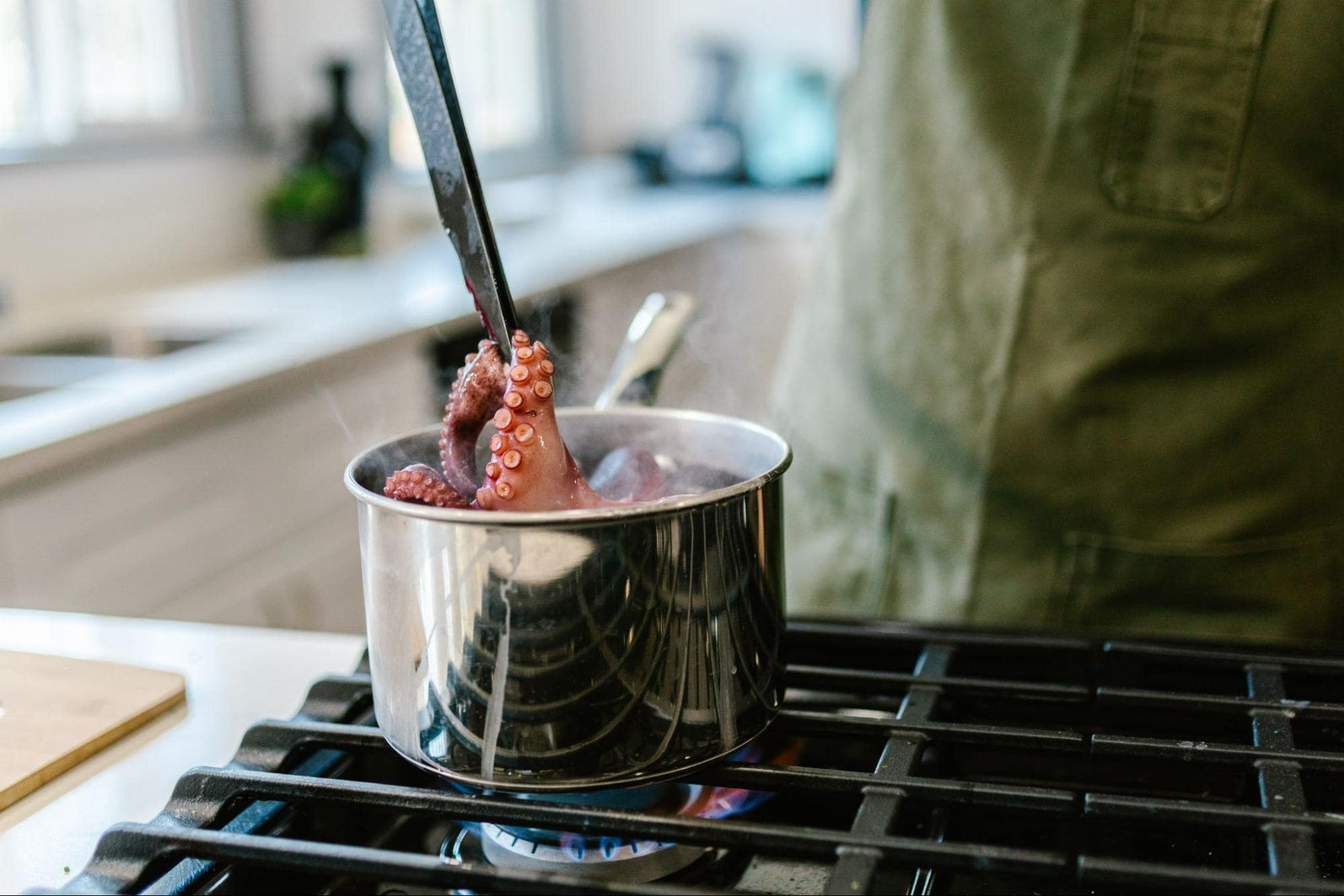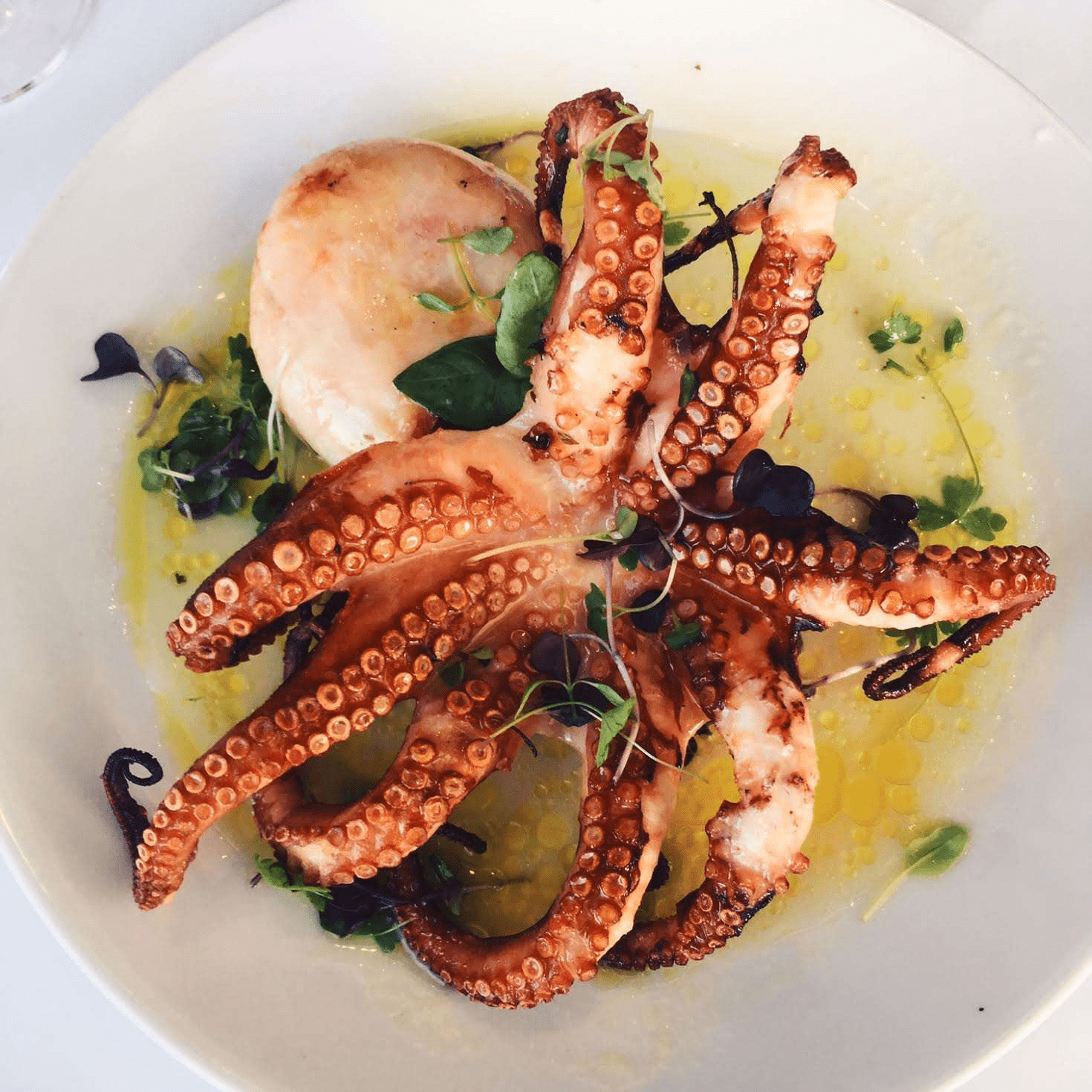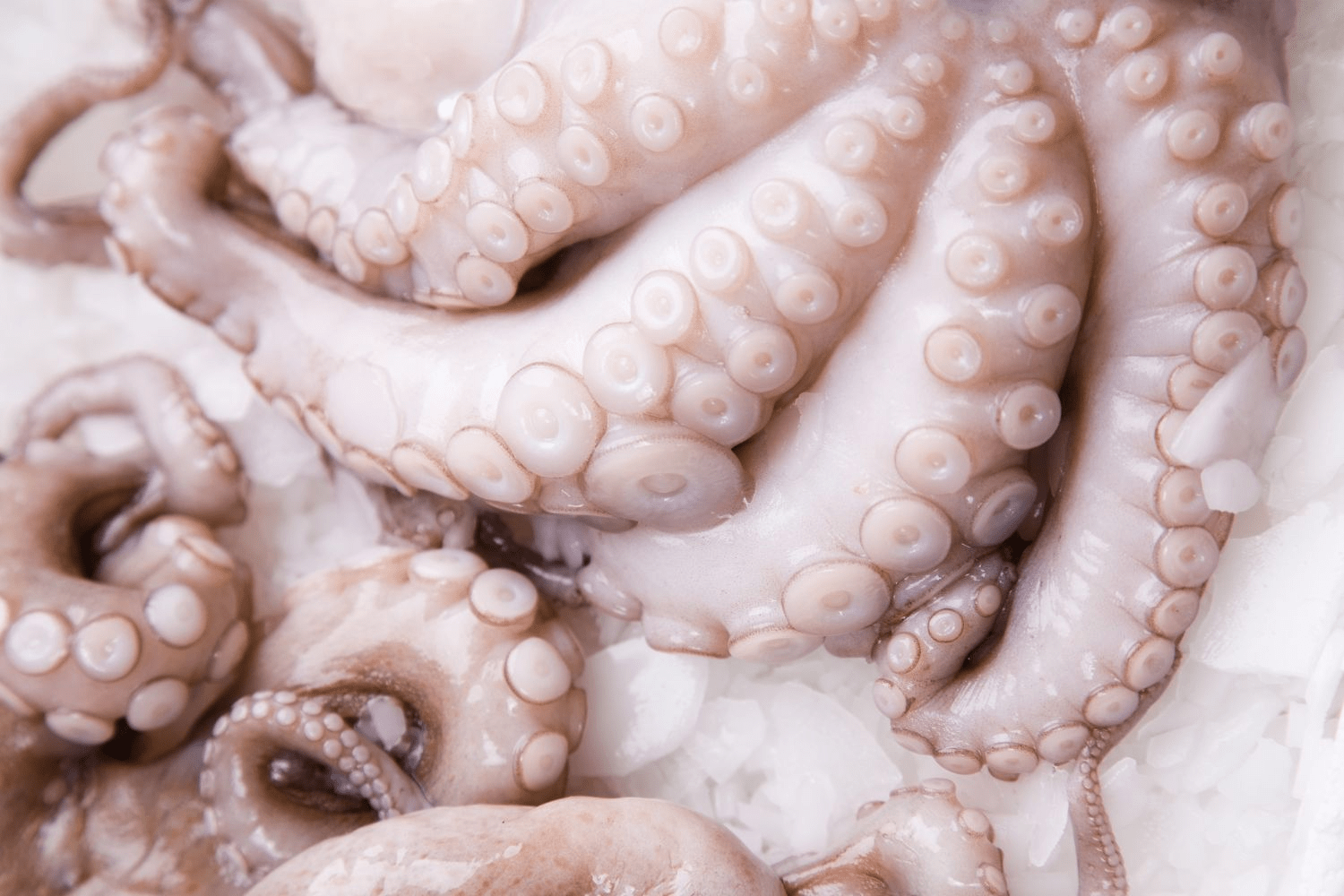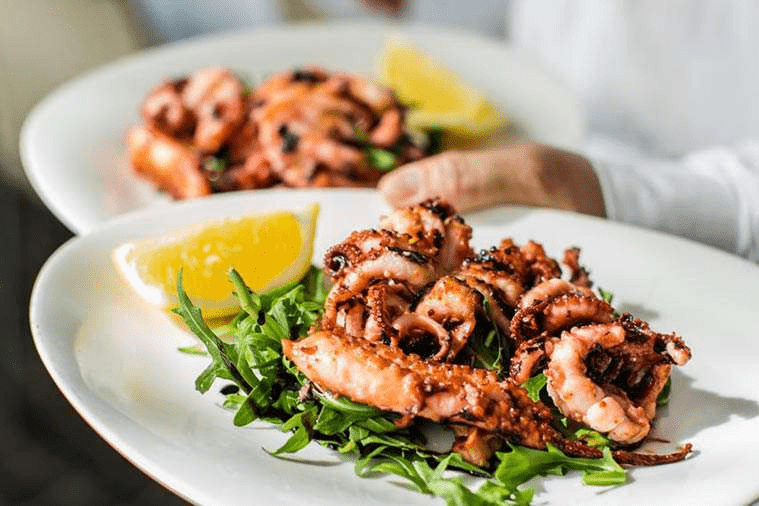

NYE ORDERS ARE NOW CLOSED!
Delivering in the New Year, direct to your door. Order online and check out.



Tender octopus marks a nicely cooked octopus dish.
Its mere appearance can intimidate anyone cooking it for the first time. Being a soft-bodied mollusc with tough connective tissues and muscle fibres, octopus can indeed be challenging to prepare. But in reality, cooking octopus doesn’t require expert-level skill. You just need to clean it, tenderise it and give it a good boil.
Cooked octopus is the perfect seafood meal for the whole family, with deliciously light and tender meat. If it’s chewy or rubbery, you might have some explaining to do—but not if you read this article and learn how to clean and prepare octopus the right way.
People commonly use frozen octopus, which comes pre-cleaned, thus cutting down prep time. If you’re worried that it won’t have the same quality as fresh octopus, note that this is no longer the case, thanks to modern freezing methods.
In fact, freezing already helps tenderise the octopus. To thaw, just defrost it for at least 24 hours in your fridge.
Cleaning removes the internal organs, skin and beak. If you opt for fresh octopus, you can have it cleaned where you buy it.
Note: When buying fresh octopus, make sure it’s devoid of the fishy smell. Otherwise, it might not be good for consumption.

Check out this mouthwatering Mediterranean-style octopus dish.
To clean an octopus, all you need is a nice paring knife and maybe a kitchen hammer (to tenderise). So, let’s get started!
Aiming just below the eyes, cut the octopus in half with your knife.
Pinch the area around the eyes and cut it off using your sharp knife. Most recipes won’t include the eyes, but some people love them fried. Perhaps you want to try it at least once, to know whether you’ll keep or discard them moving forward.
Turn the head inside out to locate the mantle, which is where the internal organs are found. Pull them off with your hands and cut off any membranes using your knife. Do this carefully to avoid breaking the sac and making a mess (although it’s no big deal if you do as you’ll rinse the octopus off later anyway).
For the beak, get to the area where the tentacles meet. Pinch that area to push the hard beak out. With everything removed, you now have an empty head with a slit that allows you to get your hand in. Flip it back to the original side.
There are many ways to do this, as we’ll discuss later in the article. But at this point, you can use the kitchen hammer to pound on the octopus for a few minutes.

These frozen octopus legs from Manettas are cleaned, tenderised and ready to cook!
Hold the octopus under the tap. The cold, running water should wash away any black ink or remaining entrails. Make sure to rinse both the inside and outside of the octopus.
With your paring knife, make a small cut into the outer membrane. Use this cut as your starting point to peel off the skin with your fingers. Rinse the octopus again with cold water.
When you’re done, you can cut the tentacles into small pieces, especially if you’re cooking for a number of people. This is also great for grilled octopus, which is a popular cooking method for this seafood.
As mentioned earlier, there are numerous ways to tenderise octopus meat. Different countries or chefs probably have their own take. Sushi chefs, for example, are known to massage the octopus for about 20 minutes. Some add vinegar to the simmering liquid or dip the tentacles in boiling water, which also curls them.
Another way to tenderise the octopus is to simply boil it. By doing this, you’re also laying the groundwork for any other cooking method you might like. For this, you’ll need a large pot. Add in some celery, bay leaves, pepper, sliced lemon, thyme and just enough water. Bring to a boil and simmer for about 20 minutes (for a kilo of octopus).
To make sure the meat is tender, locate the part where the head meets the tentacles. Take a knife and slice through. Tender octopus should allow it to slice easily. Otherwise, allow a little more time to cook. The boiled octopus can now be used in other octopus recipes!
Octopus can be cooked in a variety of ways, from pan-frying and braising to poaching or using the sous vide method. A local favourite, however, is grilled octopus. After boiling, you can season the octopus with lemon juice, olive oil, chopped garlic, salt, pepper and dried oregano. Then, throw it on the grill!

You can also try this Greek-style grilled octopus recipe!